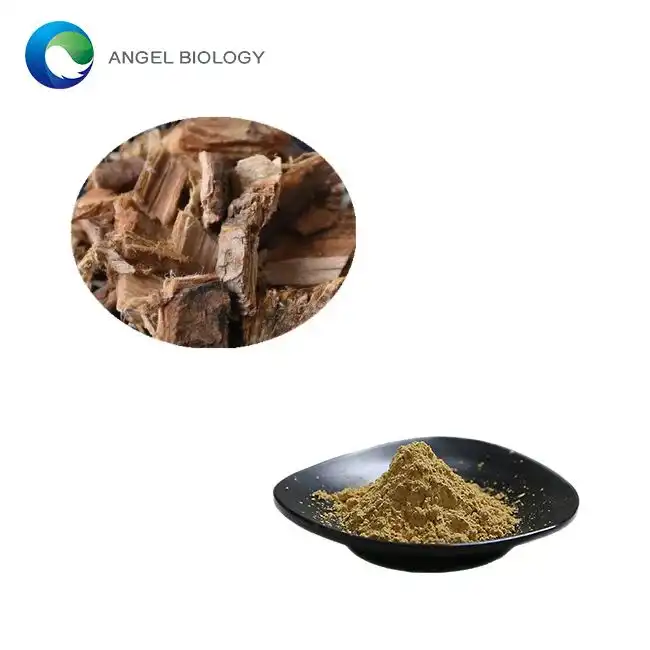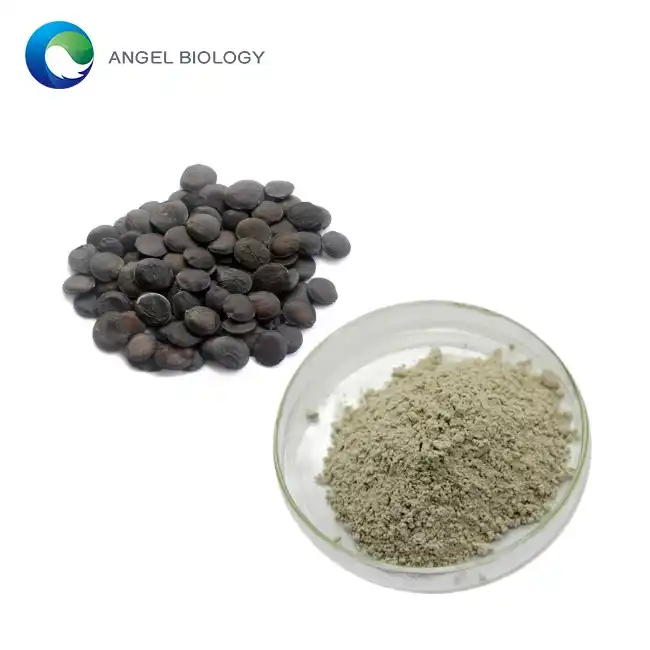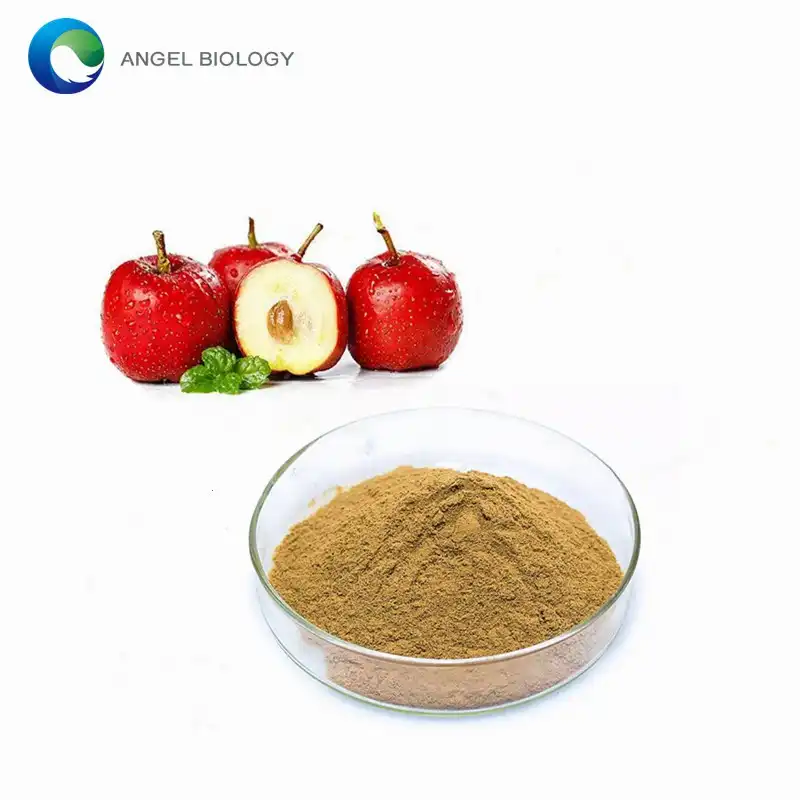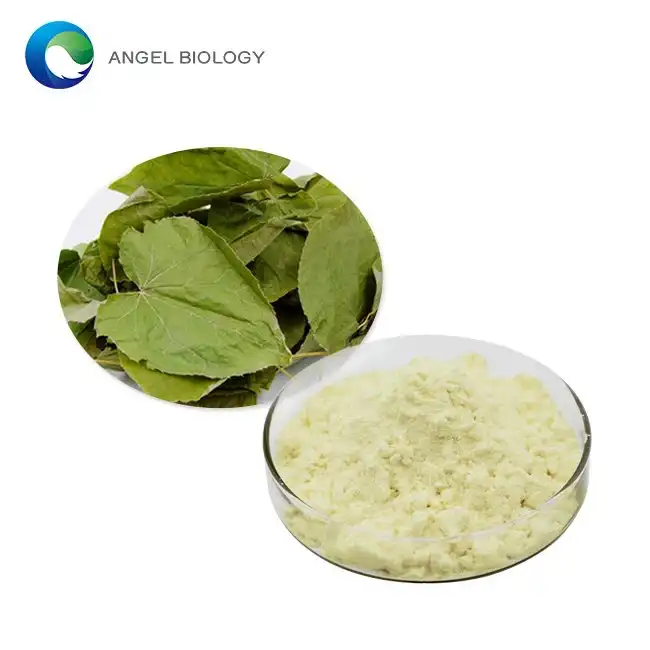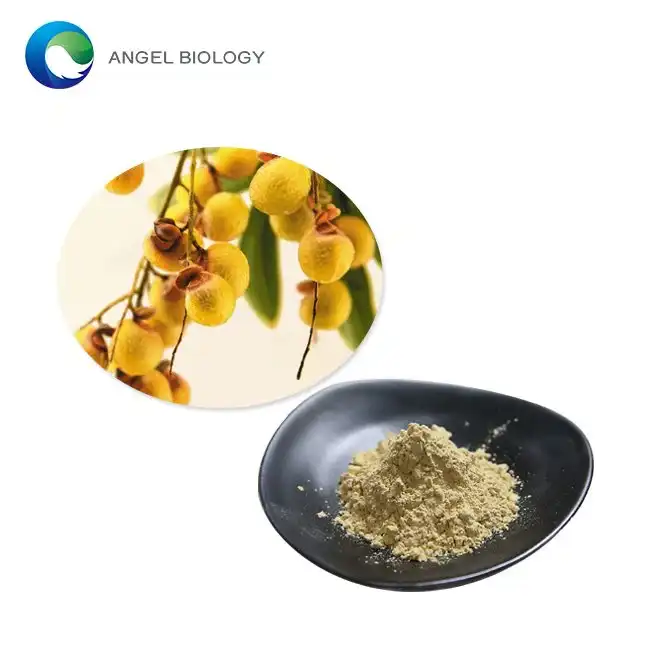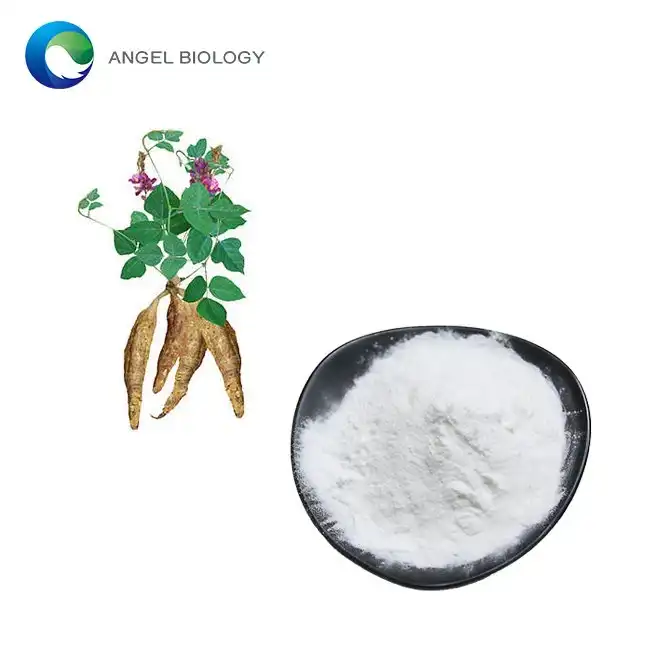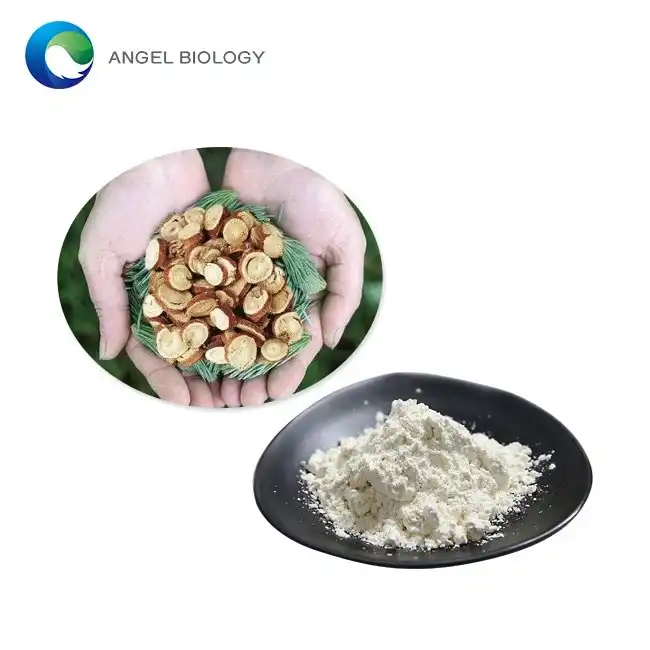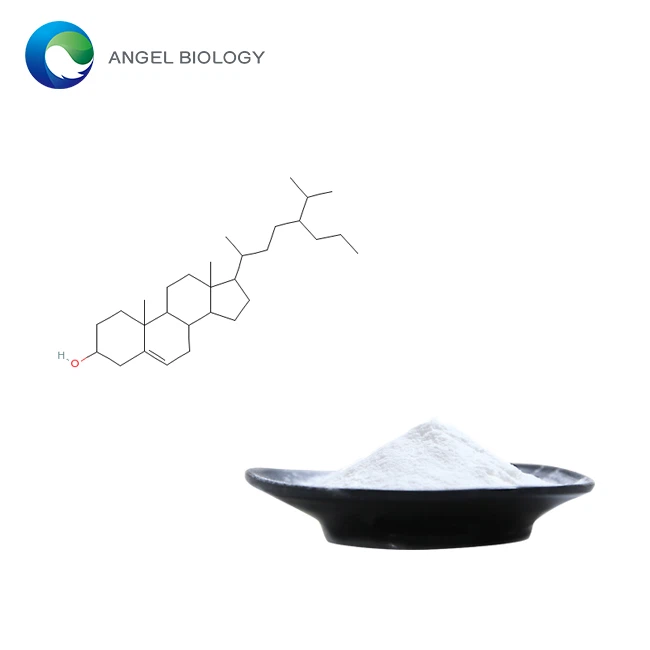Does Turkesterone Powder Boost Testosterone Levels?
In the fitness supplement industry, Turkesterone Powder has attracted attention for potentially enhancing physical performance. As athletes seek legal and effective ways to improve results, many have turned to this natural compound from plants in the Ajuga family. A key question remains: does Turkesterone Powder actually boost testosterone levels? This analysis examines the scientific evidence behind Turkesterone's effects on testosterone.
What is Turkesterone Powder and how does it affect hormone levels?
The botanical origins and chemical structure of Turkesterone Powder
Turkesterone Powder is an ecdysteroid found in plants of the Ajuga genus, particularly Ajuga turkestanica from Central Asia. Its chemical structure resembles human steroid hormones, explaining interest in its potential hormonal effects. Unlike synthetic anabolic steroids, Turkesterone is considered a natural alternative that may provide similar benefits without severe side effects. Its molecular structure allows interaction with cellular receptors, potentially influencing protein synthesis and metabolic pathways. Used in traditional medicine for centuries, modern extraction processes concentrate the active compounds to maximize benefits while maintaining its natural origin.
Mechanisms of action: How Turkesterone Powder interacts with the endocrine system
Unlike direct testosterone boosters, Turkesterone Powder appears to work through different pathways. Research suggests it may bind to estrogen receptors, specifically estrogen receptor beta (ERβ), influencing protein synthesis without directly affecting testosterone production. This mechanism potentially provides anabolic effects without disrupting natural hormonal balance. Studies indicate Turkesterone might influence muscle growth pathways like Akt/mTOR, which regulates protein synthesis, and may improve insulin receptor efficiency for better nutrient utilization without altering testosterone levels. This multi-faceted approach distinguishes Turkesterone from direct testosterone-boosting supplements.
Differentiating between anabolic effects and testosterone enhancement
It's important to distinguish between anabolic effects and direct testosterone enhancement. Anabolism refers to building complex molecules from simpler ones, including protein synthesis for muscle growth. While testosterone is an anabolic hormone, not all anabolic effects require increased testosterone. Turkesterone appears to promote anabolic activity through non-hormonal pathways, explaining why users may experience muscle growth without measurable testosterone changes. This distinction suggests Turkesterone might offer performance benefits without risks associated with elevated testosterone. Research indicates ecdysteroids like Turkesterone may increase protein synthesis by enhancing mRNA translation, building muscle more effectively without hormonal manipulation.

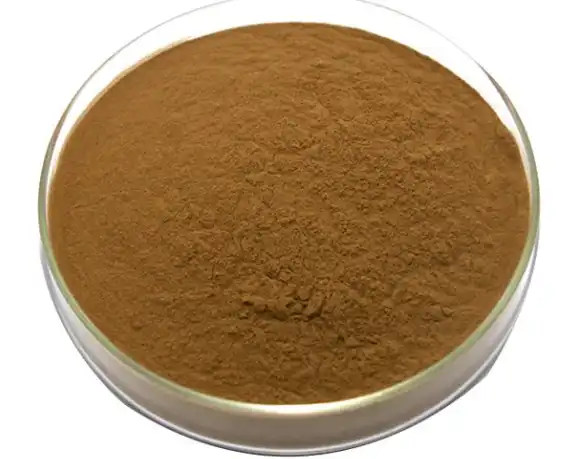
Can Turkesterone Powder serve as a natural alternative to synthetic testosterone boosters?
Comparing Turkesterone Powder to traditional testosterone-enhancing supplements
Traditional testosterone boosters typically stimulate natural testosterone production or provide precursors that convert to testosterone. These include ingredients like Tribulus terrestris, fenugreek, D-aspartic acid, and zinc. Turkesterone Powder, however, doesn't directly increase testosterone production or provide precursors, working through different biological pathways for anabolic effects. The safety profiles differ significantly—traditional boosters often cause hormonal imbalance, acne, mood swings, and liver stress, while Turkesterone has demonstrated a clean safety profile with minimal adverse effects. Additionally, conventional boosters may trigger negative feedback loops in the endocrine system, while Turkesterone doesn't appear to cause such dependency.
The safety profile of Turkesterone Powder compared to synthetic alternatives
Turkesterone's safety profile represents a significant advantage over synthetic compounds. Unlike anabolic steroids or SARMs, Turkesterone hasn't been associated with liver toxicity, cardiovascular issues, or hormonal disruptions. This favorable profile stems from its unique mechanism that doesn't directly manipulate testosterone or interact with androgen receptors like synthetic alternatives. Research suggests Turkesterone doesn't suppress natural hormone production, doesn't require post-cycle therapy, and doesn't negatively impact cholesterol or liver function. It also hasn't been linked to cosmetic side effects like hair loss, acne, or gynecomastia. While more human clinical trials are needed, existing evidence suggests Turkesterone offers a safer alternative to synthetic testosterone boosters.
Consumer experiences and anecdotal evidence regarding Turkesterone Powder effectiveness
Despite limited clinical research, substantial anecdotal evidence has emerged regarding Turkesterone's effectiveness. Many users report improvements in strength, muscle mass, and recovery, comparing effects to mild anabolic compounds but without side effects. These experiences typically describe gradual, sustainable gains rather than dramatic results, aligning with Turkesterone's proposed non-hormonal mechanism. Users frequently report improved workout performance, increased training volume, and reduced fatigue. Recovery benefits are commonly cited, with less soreness and faster return to baseline after intense training. Notably, reports rarely mention testosterone-related side effects like aggression or libido changes, suggesting benefits occur independently of testosterone manipulation. While anecdotal evidence must be interpreted cautiously, the consistency across various communities provides valuable insight into Turkesterone Powder's potential real-world efficacy.
What does scientific research reveal about Turkesterone Powder's impact on testosterone?
Analyzing existing clinical studies on Turkesterone Powder supplementation
Scientific literature specifically on Turkesterone remains limited, with most research focusing on ecdysteroids broadly. Russian research from the 1970s-80s suggested significant anabolic effects from ecdysteroids, though these studies lacked modern clinical standards. Recent research has shown promising results in animal models, with a 2019 study demonstrating ecdysteroids increased muscle protein synthesis without affecting testosterone. A 2021 pilot study on resistance-trained males using an ecdysteroid-containing supplement showed improvements in strength and body composition compared to placebo, though Turkesterone's specific contribution couldn't be isolated. Most studies haven't demonstrated significant testosterone changes following ecdysteroid supplementation, supporting the theory that Turkesterone's anabolic effects occur through non-androgenic pathways. Larger human trials using isolated Turkesterone are needed to definitively establish its effects.
Examining the physiological pathways through which Turkesterone Powder might influence testosterone
Research reveals Turkesterone works through complex mechanisms distinct from conventional testosterone boosters. Rather than stimulating the hypothalamic-pituitary-gonadal axis, Turkesterone appears to work through non-hormonal pathways. Studies suggest it may bind to estrogen receptor beta without activating typical estrogenic effects, potentially explaining how it influences anabolic processes without affecting testosterone. Other research indicates Turkesterone may enhance protein synthesis by increasing mRNA translation efficiency. Some evidence suggests it might reduce cortisol, potentially indirectly benefiting testosterone by reducing cortisol's inhibitory effect. Additionally, preliminary research indicates Turkesterone may improve insulin sensitivity and glucose metabolism, creating a favorable environment for muscle growth without directly increasing testosterone. These mechanisms suggest Turkesterone might be better classified as a "non-hormonal anabolic" rather than a testosterone booster.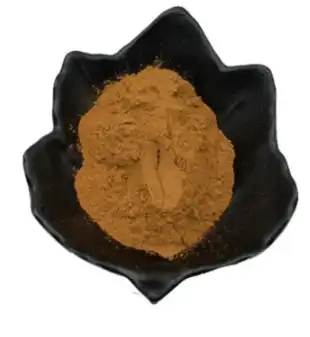
Limitations in current research and directions for future studies on Turkesterone Powder
Scientific exploration of Turkesterone Powder faces several limitations. Many studies use animal models that may not translate to human physiology. Human studies often use mixed ecdysteroid preparations rather than isolated Turkesterone, making it difficult to attribute specific effects to Turkesterone alone. Sample sizes tend to be small, and standardization issues exist with varying extraction methods, dosages, and purity levels. Future research should prioritize randomized, double-blind, placebo-controlled trials with adequate sample sizes, using standardized Turkesterone preparations and consistent dosing. Studies should measure both performance outcomes and comprehensive hormonal panels to establish whether Turkesterone affects testosterone. Research should explore differences in response between trained and untrained individuals and examine various dosing strategies. Long-term safety studies are needed, and as analytical techniques improve, researchers should investigate Turkesterone's pharmacokinetics and bioavailability.
Conclusion
After examining the evidence, Turkesterone Powder likely does not significantly boost testosterone levels directly. Instead, it promotes anabolic effects through alternative physiological pathways that mimic some benefits of increased testosterone without altering hormone levels. While more comprehensive human studies are needed, current research and anecdotal evidence suggest Turkesterone may offer a safer alternative to synthetic testosterone boosters, potentially providing modest improvements in strength and muscle development without disrupting hormonal balance.
Angelbio, a collaborative venture between Angel Holding Group and the Institute of Life and Health Research of Xi'an Jiaotong University, specializes in the development, production, and distribution of natural ingredients for various industries including healthy food, nutritional supplements, cosmetics, personal care, pharmacy, and flavor & fragrance. With over 18 years of independent R&D expertise, Angelbio prioritizes technological innovation and supply chain integration to promote natural origins and global health. Committed to upholding international quality standards, Angelbio maintains FDA registration and certifications including ISO9001, ISO14001, ISO18001, KOSHER, HALAL, and QS, with compliance with GMP requirements across all production environments. Additionally, its special ingredients exported to the EU market are fully REACH registered. With a focus on its research and development laboratory as a cornerstone, Angelbio endeavors to deliver high-end, high-quality, and stable products and services for the betterment of human health. Trusted by customers, particularly as a China Turkesterone Powder manufacturer, Angelbio invites inquiries and interest in its products at angel@angelbiology.com, ensuring dedicated service to all clientele.
References
1. Parr MK, Botrè F, Naß A, et al. Ecdysteroids: A novel class of anabolic agents? Biology of Sport. 2020;37(1):3-12.
2. Dinan L, Lafont R. Effects and applications of arthropod steroid hormones (ecdysteroids) in mammals. Journal of Endocrinology. 2006;191(1):1-8.
3. Isenmann E, Ambrosio G, Joseph JF, et al. Ecdysteroids as non-conventional anabolic agent: performance enhancement by ecdysterone supplementation in humans. Archives of Toxicology. 2019;93(7):1807-1816.
4. Syrov VN, Kurmukov AG. Anabolic activity of phytoecdysone-ecdysterone isolated from Rhaponticum carthamoides. Farmakologiia i Toksikologiia. 1976;39(6):690-693.
5. Chernogubova EA, Berezhnoy GA, Kochurova NN, et al. Effects of ecdysterone-containing preparation "Prime Plus" on the working capacity and cardiorespiratory system indicators of athletes. Theory and Practice of Physical Culture. 2011;7:62-65.
6. Gorelick-Feldman J, Maclean D, Ilic N, et al. Phytoecdysteroids increase protein synthesis in skeletal muscle cells. Journal of Agricultural and Food Chemistry. 2008;56(10):3532-3537.



